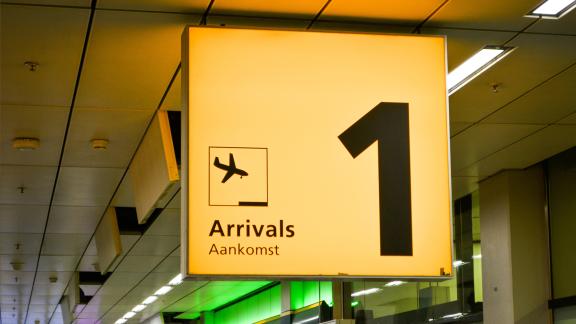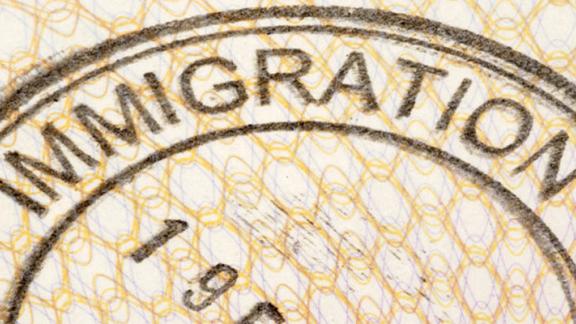EU Settlement Scheme

The EU Settlement Scheme was implemented following the UK departure from the EU.
Key points
- The EU Settlement Scheme was open from 30 March 2019 to 30 June 2021 to all EEA citizens meeting eligibility criteria.
- Late applications to the scheme can still be submitted. Individuals must make an application under Appendix EU and provide evidence with their application setting out the reasons for the delay.
- From September 2023, people with pre-settled status under the EU Settlement Scheme will automatically have their status extended by two years before it expires if they have not obtained settled status.
- The Home Office intends to take steps to automatically convert as many eligible pre-settled status holders as possible to settled status once they are eligible for it (without them needing to make an application).
- Those with indefinite leave to enter/remain in the UK or have British or Irish citizenship do not need to apply.
- Permanent resident documents are no longer valid. Those who have settled status under the EU Settlement Scheme can apply for British citizenship.
- EU, EEA and Swiss citizens who hold pre-settled, settled status, or who have pending application, and those whose rights are protected under the Citizens’ Rights Agreements (such Frontier workers) will be able to use their national identity cards to enter the UK until 2025 at least.
For more guidance on the EU Settlement Scheme, please visit the GOV.UK website.
| Resource | Description |
| Skilled worker route | NHS Employers | The Skilled Worker Visa is a sponsored route available for individuals coming to the UK for work. |
| Skilled worker: Health and Care visa | NHS Employers | The Health and Care Visa is a subsection of the Skilled Worker Visa. The Health and Care Visa applies to qualified doctors, nurses, allied professionals, and other professionals working in either health or social care. |
| The points-based immigration system | NHS Employers | Collated guidance to assist employers to navigate the system points-based immigration system. |
| EU Settlement Scheme webinar | NHS Employers | A recording of our webinar with Capsticks LLP, discussing the political context and ways of supporting staff. |
Recognition of professional qualifications by UK professionals
The standstill provisions which were originally put in place after the UK left the EU in 2020, allowed EEA-qualified healthcare professionals to work in the NHS without needing to sit additional exams or assessments have been extended until 2028, when a further review is expected to take place. EEA-qualified healthcare professionals will be able to continue to register with the relevant professional regulator, without the need to sit additional professional exams, mitigating delays to registration and employment in the NHS. More information on this is available on the GOV.UK website.
Different arrangements apply for Swiss nationals, who benefit from a four year “grace period” from 01 January 2021 during which they will be treated in the same way as pre-31 December 2020 EEA applicants based on their nationality, not their place of qualification.
Recording status on ESR
The Electronic Staff Record (ESR) includes fields to record and report on pre and settled status to ensure EU Settlement Scheme information can be suitably recorded.
Demonstrating settled status and right to work
EU staff are able to view and prove their settled status online using the GOV.UK website. Using this service, staff will be able to obtain a code to share with employers that will evidence their status. EEA nationals will need to demonstrate their right to work either by proving their pre-settled or settled status or with a visa under the points-based immigration system.
EU, EEA and Swiss citizens who hold pre-settled or settled status under the EU Settlement Scheme, or who have made a valid application under the scheme which is still pending, and those whose rights are protected under the Citizens’ Rights Agreements (such Frontier workers) will be able to use their national identity cards to enter the UK until 2025 at least.
Information about employing EEA nationals
Employers should ask nationals from all EEA countries and Switzerland to prove their nationality by producing one of the documents, or combinations of documents, specified in the right to work checks standard document on our NHS Employment Check Standards web pages.
Immediate family members are also able to work freely in the UK while their adult EEA family member is legally residing and working here. Employers must check documentation to demonstrate this entitlement.
Which countries are part of the EEA?
Austria, Belgium, Bulgaria*, Croatia*, Czech Republic, Cyprus, Denmark, Estonia, Finland, France, Germany, Greece, Hungary, Iceland, Republic of Ireland, Italy, Latvia, Liechtenstein, Lithuania, Luxembourg, Malta, the Netherlands, Norway, Poland, Portugal, Romania*, Slovakia, Slovenia, Spain and Sweden.
*See further information below regarding worker restrictions.
Croatian nationals
Croatia joined the EU and also became part of the EEA on 1 July 2013.
From 30 June 2018, Croatian national registration requirements ended, bringing their right to work in the UK in line with other EU citizens.
Bulgarian and Romanian nationals
From 1 January 2014 labour market restrictions on individuals from Bulgaria and Romania ended and they are no longer subject to Immigration and Worker Authorisation Regulations 2013.
Turkish nationals
The European Community Association Agreement (ECAA) with Turkey provides Turkish nationals who are already legally employed in the UK with certain rights when they want to extend their stay. To be eligible, the Turkish national must have been granted or applied (successfully) for ECAA leave on or before 31 December 2020.
Employers will be able to use this documentation to check a potential or existing employee's right to work in the UK. A Turkish ECAA worker visa does not give the individual an automatic right to apply for indefinite leave to remain and any application to UK Visas and Immigration for indefinite leave to remain will be rejected. The duration of leave granted to an individual will be between 12 and 36 months. At the end of this period, another application must be made if further leave to remain is required.
A Turkish worker will, however, be eligible to apply for indefinite leave to remain after they have legally resided in the UK for a period of ten years, or two to fourteen years of continuous residence of any legality.
Further information can be found on the UK Visas and Immigration pages of the GOV.UK website.



